Dune (1984)
Directed by: David Lynch
Written by: David Lynch, Frank Herbert
Starring: Francesca Annis, Jurgen Prochnow, Kyle MacLachlan, Virginia Madsen
USA
AVAILABLE ON BLU-RAY AND DVD
RUNNING TIME: 137 mins/ 176 mins [TV version]
REVIEWED BY: Dr Lenera
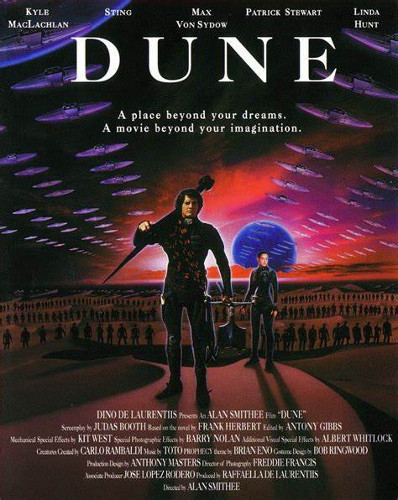
It is the year 10191 and the universe is dominated by the presence of the spice Melange which extends life, expands consciousness, and can fold space. It exists in only one place: the desert planet of Arrakis, also known as Dune, whose inhabitants, the Fremen, have a legend that tells of the coming of a messiah from another world. The Emperor of the Known Universe, Shaddam IV, becomes concerned that the House of Atreides on the planet Caladan is becoming too powerful, so he plots with their enemies, the House of Harkonnen, to allow the Duke Leto Atreides to guard Dune and its spice ore, where they will be vulnerable to a surprise attack from the Harkonnens. Leto’s son, Paul, the result of a centuries-long breeding program by the Bene Gesserit witches [of whom his mother is one] to produce a super being called the Kwisatz Haderach, is plagued by dreams of a strange future. On Arrakis, Leto is unaware that a traitor working for the Harkonnens is in their midst….
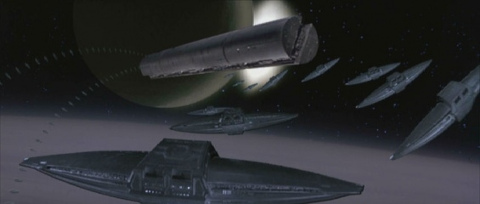
Film fans often dream of seeing complete cuts of films that were hacked up, from The Magnificent Ambersons to Batman Forever. With apologies to Joel Schumacher and especially Orson Welles, my holy grail is Dune, for writer/director David Lynch to return to it and add all the footage that he wants to, though it’s hugely unlikely to happen; Lynch, who still refuses to talk about it, would surely have done so by now if he wanted to. Yet even in its compromised theatrical cut, I’ve loved Dune ever since I first hired it out on video in 1986. Here was a science fiction epic that contained many of the things you would find in Star Wars and films of that ilk – spaceships, vast battles, noble heroes, nasty villains, monsters – but which looked and felt totally different to any of those films. I also understood the story, which shows how dumb all those critics who complained that it was unintelligible were. It’s only mildly complicated, and only a few things are vague or not explained, something which is often praised in other films for giving viewers the opportunity to think. Even Roger Ebert, so often on the ball, called it “an incomprehensible, ugly, unstructured, pointless excursion into the murkier realms of one of the most confusing screenplays of all time”. I first got interested in Dune when I saw toys from it in my local newsagents. Yes, toys – for an adult-toned film that was ’15’ rated in the UK, and there were even colouring books where kids could have fun colouring in corpses of characters. Of course since my first viewing its flaws have become more obvious, even though I think they did a reasonable job of adapting Frank Herbert’s novel. You know why? Because in my opinion the book is boring, mostly consisting of pages and pages of turgid dialogue and nothing happening. I did read it about thirty years ago though, so a re-read could be in order.
It was nonetheless a cultural phenomenon in the ’60s, with Herbert incorporated many concerns of the time such as drug use, religious fanaticism, genetic engineering and the environment. Arthur P.Jacobs, fresh from producing Planet Of The Apes and eager for another science fiction hit, optioned it in 1969 and offered David Lean the chance to direct, but then died of a heart attack. In 1975 Alexandro Jodorowsky, backed by millionaire Michael Seydoux, obtained the property, wrote a screenplay for a ten-hour movie and hired an amazing collection of artists including Jean ‘Moebius’ Giraud, H.R, Giger, Dan O’ Bannon and Chris Foss, while the cast included Salvador Dali, Orson Welles and Charlotte Rampling, with Pink Floyd to write the music. As the sets were being built, the finances for what remain one of the great unmade films dried up. Dino De Laurentiis bought the rights in 1978 and got Herbert to write the screenplay which was apparently “unfilmable”. Then Rudolph Wurlitzer did another screenplay [which included Paul having sex with his mother!] and Ridley Scott was to direct until his older brother died of cancer. De Laurentiis then chose Lynch to direct, and Lynch ended up scribing most of the script too. Filming went ahead in New Mexico with few hiccups except for Jurgen Prochnow narrowly escaping death when a lightbulb exploded above where he was tied up, before then being facially burned by some gas intended to temporarily disfigure his face. De Laurentiis and his daughter Rafaella chopped the four-hour rough cut down to three hours which Lynch accepted, but then Universal cut it further down to 137 minutes. Awful reviews and box office followed, though Dune remains the only Lynch film to debut in the top ten, reaching number two during its opening weekend. In 1988 MCA put together a three-hour TV version that restored some deleted footage, but largely botched it through shoddy editing and repetition of footage. I usually love extended versions of films, but this edit of Dune is a real mess.
We open with Virginia Madsen as Princess Irulan giving us some background; many reviews said it’s impossible to understand but I disagree entirely because this 15-year old totally picked up on what was being told to us. Of course there’s no doubt though that her narration in later portions was added late in the day to mask over cut footage and after a while becomes intrusive. Early scenes of one of the Guild Navigators, who resemble a cross between human foetuses and grasshoppers because they’ve been so addicted to the spice which they’re losing their control of, visiting the Emperor to demand that he sort out the mess that’s going on, Paul reading a secret ‘Guild Report’ about the planets, and the Bene Gesserit Reverend Mother Mohiam [who was originally intended to narrate the opening until the marriage of actress Silvano Mangano and De Laurentiis broke up and the latter cut down her part] visiting Paul, feed us enough of what it’s all about. The first third or so is undeniably rather solemn, but myself and my two much younger brothers with whom I watched it with back in 1986 weren’t at all bored; we have Paul undergoing trials against a Weirding Module, his uncle while both are wearing laser shields, and a box of pain, while the villains truly are grotesque and seemingly homosexual. In fact they’re probably too grotesque and homosexual for today’s climate because of the seeming and undeniably unpleasant correlation between the two terms – not to mention the fact that they’re also probably too grotesque and homosexual for six and eight year-olds in a film which also shows such sights as a burning hand and a hole in a face, but then we were lenient in our household.
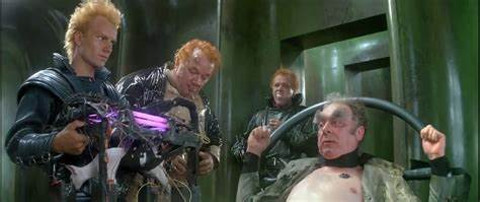
House Atreides leaves their planet, and we have a breathtaking and majestic scene where their spaceships, slowly not quickly, go into a tunnel inside this huge cigar-shaped craft in space and are transported to Arrakis by the Guild Navigators by them folding space, and we actually see space being folded, unlike in Event Horizon and Interstellar. The visuals are mostly astounding, and the few shots near the end that aren’t don’t really let things down because we’re still admiring the concept. Once on Arrakis, things quickly go from bad to worse for the good guys, with a traitor in their midst [albeit a traitor who’s being forced to do this] who enables the Harkonnens to execute a surprise attack. The resulting battle betrays Lynch’s lack of interest in such material, consisting mainly of a few long shots of people running while explosions go off in the background, intercut with the odd closeup of a few people fighting or shooting. Paul and his mother escape into the desert to join the Fremen who may just welcome him as their saviour. It’s obvious that the second half suffered the most cuts, as events move incredibly quickly. Wouldn’t it have been nice to have seen some of Paul and Chani’s courtship instead of just having their first meeting, then a tiny moment when she says “tell me of your home world Usul”?, then cutting to them kissing a few scenes later? The subplot of Paul’s sister Alia, an “abomination” because Paul took “The Water of Life”, also seems hugely truncated. The final battle appears to be missing major shots and we don’t get a sense of the scale of things. The two most substantial deleted scenes that were restored to the TV cut show Paul fighting an opponent for leadership of the Fremen, and the milking of a sandworm, and both should have been left in even though their omission isn’t noticeable. Elsewhere, scenes seem edited down, being mostly short and with sometimes strange edits, but a good part of me likes the almost hallucinatory feel this creates. It’s not like in some modern films where it feels like everything’s been cut to the bone so teenagers don’t look at their phones.
The incredible sets and costumes never fail to impress and startle. Instead of trying to be futuristic, this movie looks to the past, so you get echoes of Tsarist Russia, Nazi Germany, Victorian England and many other things, and you cannot deny that this makes for a visually opulent movie. Some of the terminology recalls Islam – Paul even embarks on a “Jihad”. The special effects though, it must be said, are a mixed bag, with some very poor matting in particular letting the side down, and some superbly detailed model work mixed with things that look they were just thrown up in a couple of minutes. Sometimes the design is so ambitious that the effects people can’t quite do it justice in the execution. The worms though, replete with mouths that open into vaginal orifices, are expertly created and executed, and feature in lots of scenes too. Lynch of course seems to have more fun with Paul’s dreams and spice-induced hallucinations, with re-occurring images such as an outstretched hand and pools of water [or is it oil?] dominating flash forwards. The outstretched hand of course symbolises an awakening, a child becoming an adult who will set things right. Seeing as, for example, characters display outstretched hands throughout, you can’t deny that a lot of this movie has been properly thought through. I also really like the device of us hearing what characters are thinking even if it’s contradictory to what they’re saying; it adds intrigue and creates a sort of trance-like state just as in Terence Malick’s films. But there’s that clumsy moment when Paul kisses Chani in the desert. He says “I love you” at the precise second he kisses her, yet it doesn’t sound like it’s his ‘interior’ voice but his real voice, even though he can’t be speaking because his lips are planted on Chani’s.
We first see Baron Harkonnen having diseases being injected into him, seemingly so he remains both ugly and ugly-tempered, then immerse himself in some kind of oil-like substance, before he float over to a boy, pulls a heart plug out of his chest causing blood to pour out, then do something to him which is not seen, in a scene full of sadistic sexual imagery without being particularly explicit. Dune is full of symbolic visuals and contains some of the obsessions that would become a major part of Lynch’s work, including voyeurism, dreams and light/dark female characters. There’s a cygnet ring that turns up in almost as many places as that ring in Twin Peaks: Fire Walk With Me. Yet there are books about Lynch that totally ignore this film, even though it’s full of cast members with whom he would work again, often more than once. Some other elements, like “The Weirding Way” which is rather like “The Force”, resemble things in Star Wars, but then George Lucas was probably inspired by the novel in the first place. It’s hard not to chuckle when people yell at guns and make them fire. There’s also a strong drug element, but nobody can rightfully say the movie advocates drug-taking. Melange may expand Paul’s consciousness, give him certain powers and enable him to ride an enormous worm, but he’ll be addicted to it for the rest of his life and the drug is basically the cause of these wars anyway.
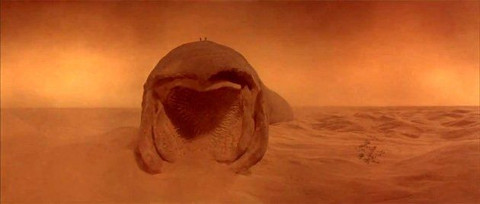
Now I’ve always had a bit of a problem with stories concerning prophecies coming true, because they tend to consist of us being told what will happen, after which we then see it predictably enacted before us. That’ doesn’t really make for exciting storytelling, is it? Dune even gives us some cheesy moments like someone crying out “he IS the legend” as Paul does something super. However, it still manages to overrides this issue partly by being so odd in so many ways, and partly by being surprisingly ambivalent about what it’s supposedly more sympathetic surviving protagonists embark on, Paul’s attitude seeming worryingly merciless despite what Irulan may say in her last and rather contradictory bit of narration about him ” bringing peace and love”. Saying that, the strongest conceptual change from the book is that Paul is changed from a human pretending to be a god, a false prophet, to the actual Kwisatz Haderach himself. I wonder if that was decided upon quite late in the day? Surely that silly if interesting final scene of Paul bringing rain to Arrakis, the editing of which hints that Paul could be literally bringing water from one planet to another, was a late addition? Herbert must have winced, yet unlike so many other writers of books adapted for the silver screen he was publicly surprisingly kind to the film. The main question for me, which may have been answered in the early cuts but I don’t know for sure, concerns the Bene Gesserits. They’re trying to create this super-being because of a prophecy, but was this a genuine prophecy that they had, or a pretend one they made sure spread everywhere so that people would be believe, fear and obey the Kwisatz Haderach when he arrives on the scene?
Kyle MacLachlan is somewhat insipid as Paul, but this was his first film role. Everyone else acts their socks off, with the performances of the more ‘culty’, ‘offbeat’ cast members clashing in a quite wonderful way with the acting of the more ‘serious’, ‘traditional’ thespians. Some characters are given short shrift, Helen Hunt’s Shadout Mapes especially seeming like she’s going to be important but is found dying in only her second scene, while Richard Jordan’s role as Duncan has clearly had its subplot hacked down to almost nothing and we’re only given a few seconds to enjoy an important reunion between him and Paul; we so want to be emotionally involved but can’t really get there. Brad Dourif’s lunatic hand and arm gestures and Sting’s extremely perverse stare are memorable. Eyebrows feature a great deal, with Freddie Jones winning on that score, but there are worthy also-runs. Virginia Madsen and Sean Young have virtually nothing to do. The score by the band Toto, despite being mucked about with a bit during editing, is often grand and extremely atmospheric and sounds totally different to your typical John Williams/Jerry Goldsmith type of science fiction score, with one of those absurdly simple main themes that you still probably won’t get out of your head for ages. The flourishes of ’80s electric guitar and electronica amidst the orchestral stuff give the score a distinct flavour. It’s a fine effort coming from a rock band with no prior experience of film scoring, and it’s a shame they didn’t do more. A beautiful Brian Eno piece is somewhat haphazardly cut in to some scenes. There’s a great deal wrong with Dune as it stands, but it’s enticingly strange, mystical and audacious, is filled with unforgettable imagery, and resolutely refuses to do things normally. in 2000 Dune was also turned into a much more faithful mini-series that I haven’t seen but will soon do so. And then there’s the new movie. I have no doubt that it will be very good and I already want it to be a hit so they make the second part. It may very well be a better movie than Lynch’s Dune. But I doubt it’ll have its quite wonderful idiosyncrasies.




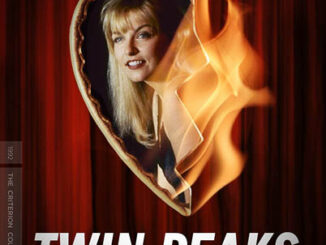
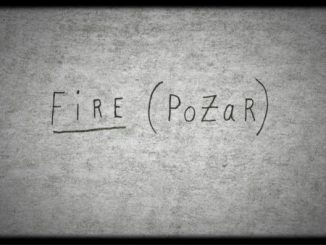
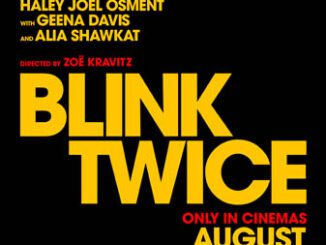
This is one of my favourite Sci/FI epics,and your write up more than sums up this cult classic by the awesome Lynch.I also agree that the storyline is pretty straight forward if you keep your eyes and ears open,just not enough laser action for some,and not far enough out for others.
Thankyou, and I was hoping someone else had a love for this movie, we so often seem to share the same tastes!
Late to the party here, but just wanted to say, nice recap!
Put me in the totally enjoyed it, mostly understood it group.
I love the visual style and much of the acting is top notch. Sure there’s some missteps along the way, but all in all an enjoyable ride if you pay attention to what’s going on and just let go of any of the stuff that you don’t understand or is poorly explained.
I’d have this over Star Wars any day.
Any film that doesn’t show most alien life as cute and adorable is a big plus, plus the Harkonnans were so messed up it was an eye opener for sure
Such a shame there will never be a completed version……